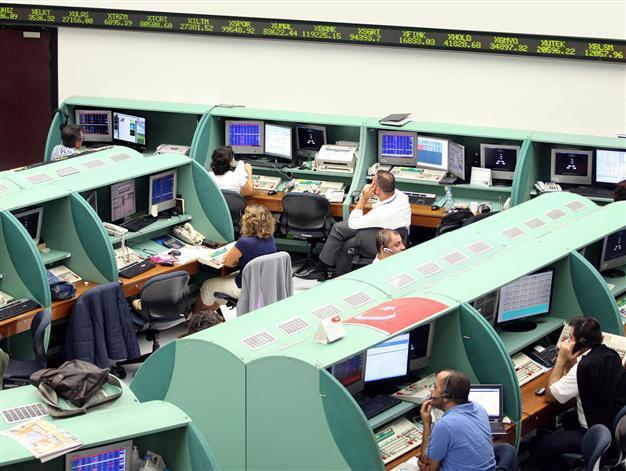Fitch investment move pleases gov’t, markets
ISTANBUL

The Istanbul Stock Exchange (İMKB), which had already been climbing over the speculations of a Fitch upgrade, saw another historic high Nov. 5 at 73,147.61 points at the beginning of the noon session before slight losses in the afternoon. AA Photo
Fitch, one of the three leading global rating agencies, upgraded Turkey to investment level in “a very late decision,” according to Ankara.Markets appreciated the upgrade, which will unsurprisingly attract investors to Turkey.
In a note yesterday, Fitch said near-term risks in the Turkish economy had eased. The agency said it was upgrading Turkey’s long-term foreign currency issuer default rating (IDR) to “BBB-“ from “BB+” and the long-term local currency IDR to “BBB” from “BB+.”
“The Turkish economy is on track to return to a sustainable growth rate,” Fitch said, highlighting the narrowing of its current account deficit, underlying strengths and lowering of inflation. “Fitch does not expect the civil war in Syria to draw Turkey into a full-scale military conflict. If such an event took place and had a significant economic and fiscal impact it could lead to a downgrade.”
With the upgrade, Turkey has the same rating as India, Croatia, Indonesia, Bulgaria and Iceland.
The upgrade is the “validation of a belated right,” Economy Minister Zafer Çağlayan said in a written statement Nov. 5.
A first since 1994
Despite a shortfall in exports to EU countries, Turkey’s foreign sales increased 13.7 percent in the first nine months of the year, which is positive sign, Çağlayan said. “I hope this upgrade will show the way to other rating agencies.”
The upgrade, Turkey’s first investment-grade rating since 1994, triggered a rally in financial markets. Shares jumped 2 percent to a record high, the benchmark bond yield fell to a near-record low and the lira strengthened, Reuters reported.
Moody’s rates Turkey one notch below investment grade, while the S&P puts it a rung lower still.
Turkey had been downgraded to junk after a homemade economic crisis in 1994.
Deputy Prime Minister Ali Babacan also welcomed the move, saying it was appropriate and overdue and said he hoped that other ratings agencies would follow its lead. “Turkey’s achievement of this credit rating is expected to mark the start of a new era in the access of our public and private sector institutions to international capital markets,” Babacan said in a statement.
Many economists agreed with Babacan. “Turkey should have long been investment-grade status, given its proven willingness to pay in difficult circumstances. The external financing risks to the sovereign have long been overstated,” said Standard Bank head of EM research Timothy Ash.
“This is a big confidence boost to Turkey and should help attract a new investor base to Turkey. I would expect Moody’s to follow, and eventually S&P, kicking and screaming!” he added.
“It’s important to know that credit markets have been trading Turkey like an investment-grade credit for some time,” said Manik Narain, emerging markets strategist at UBS. “But at the end of the day this will create actual investment inflows and lower borrowing costs even though it was partially priced in.”
















